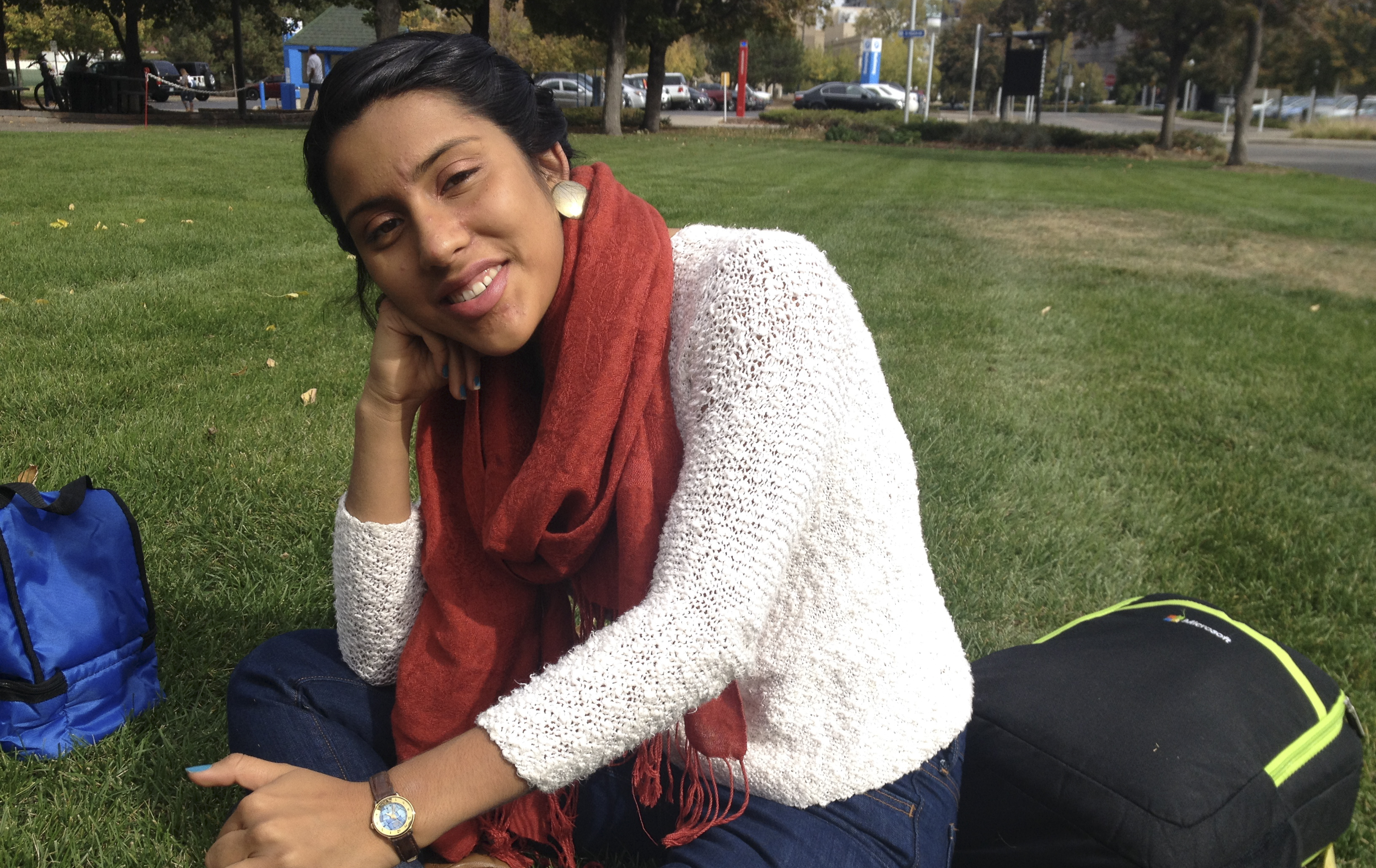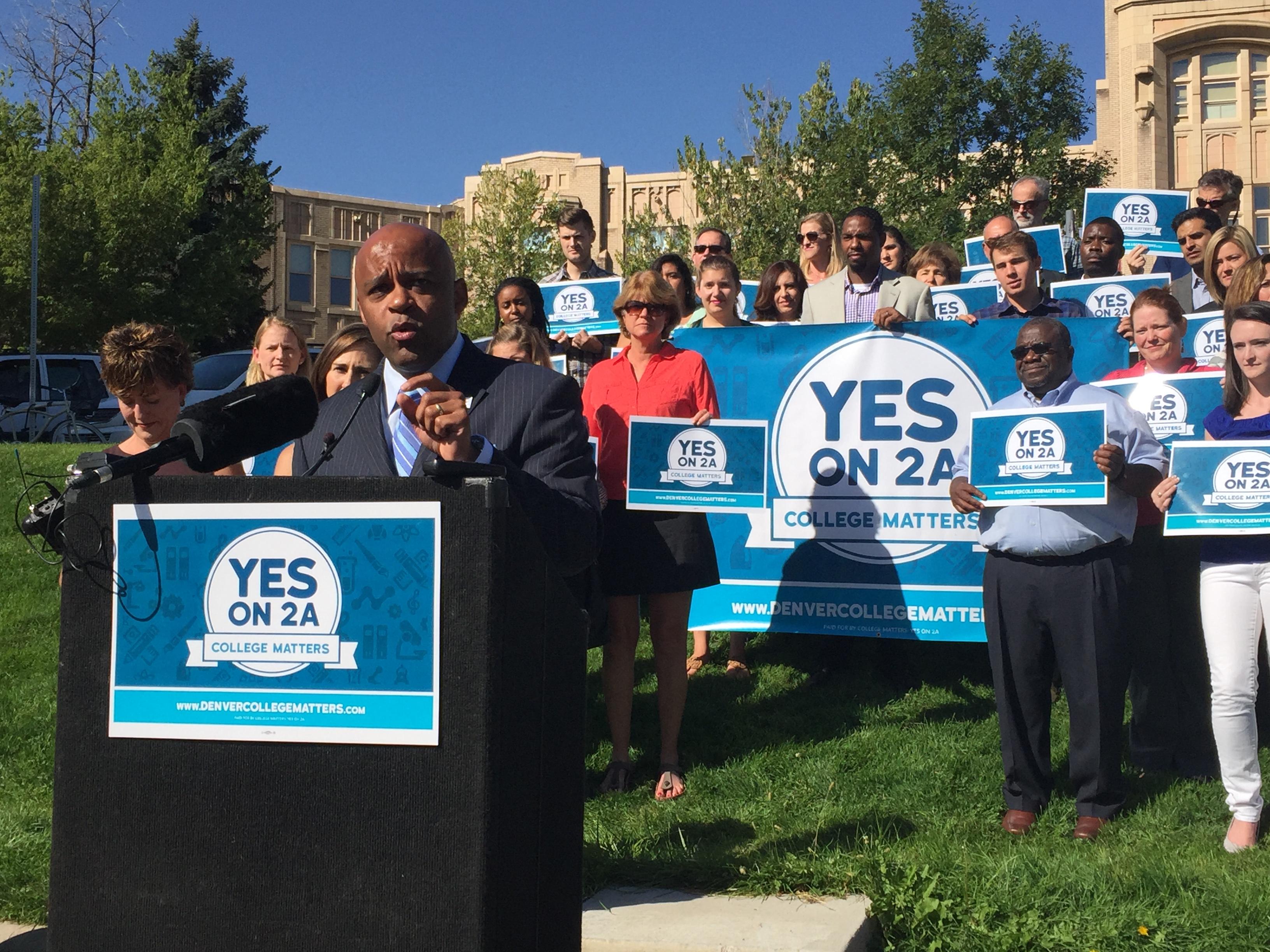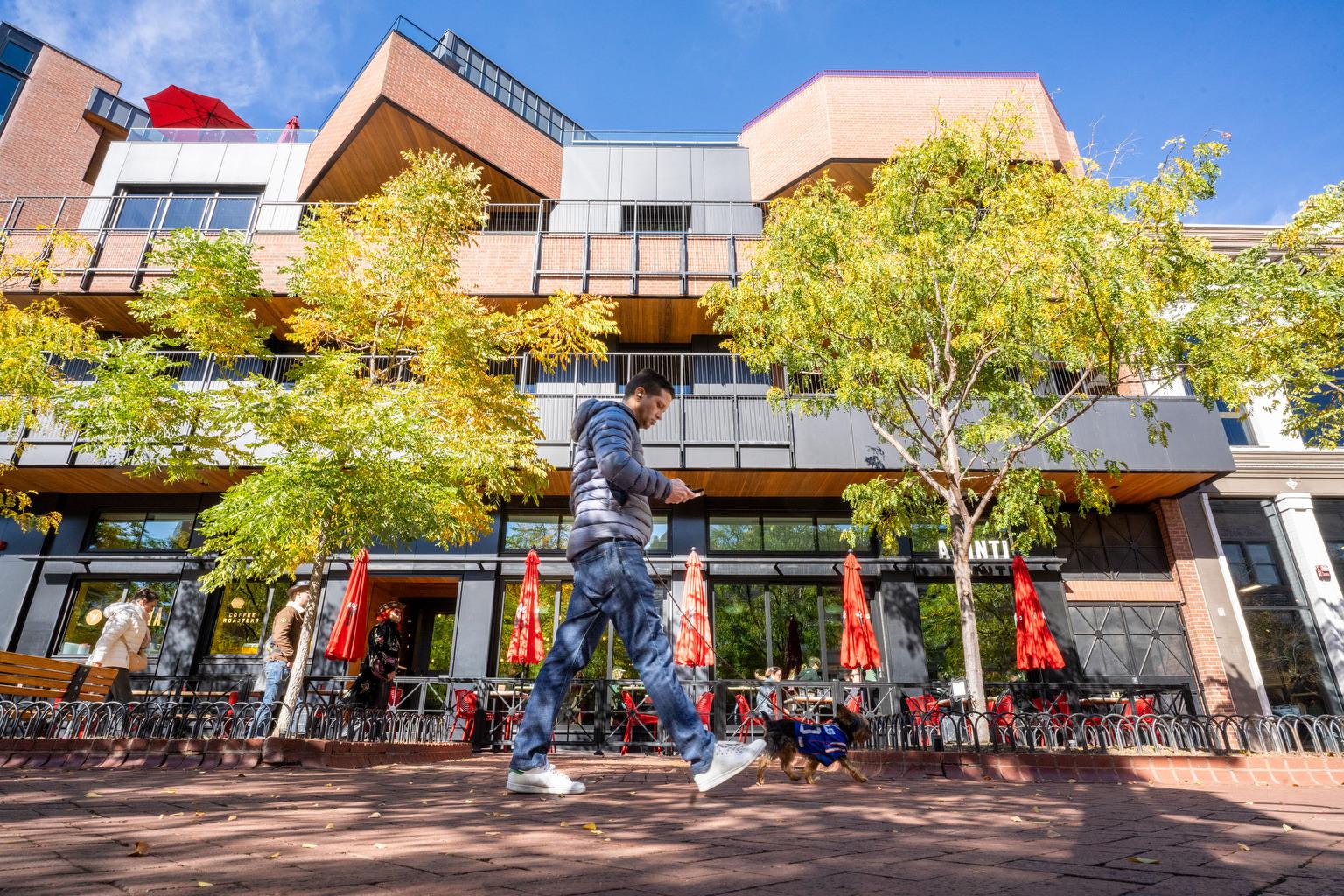
High school senior Kalina Gallardo spends four hours a day on homework. She’s also taking a free course right now at the Community College of Denver for college credit.
The 17-year old also hones her leadership skills as a member of Denver’s student board of education.
She’s a shoe-in for college one day, right?
“No, not at all!” she exclaims, when asked if she’ll be able to afford college after high school.
“Just even looking at this college, CCD, I would still have to have a full-time job and I don’t... those numbers, I can’t fathom it.”
While some of Denver’s students come from upper-income families, the vast majority of the district’s students, like Gallardo, live in poverty.
Education has been the rock in Gallardo’s life. Her dad isn’t living here. Her mom suffers from a serious mental illness that’s put her in and out of jail – and the young Gallardo is the one struggling to find care for her mom.
Gallardo’s parents never finished high school but told Gallardo and her brother that the best path to contentment in life is education.
“Being first generation means being able to take those words our parents have given us and turning it into real action,” she said.
Hope Lies In Measure 2A
Gallardo and thousands of her peers now pin their hopes on Denver's measure 2A, which, if it passes, would create a city-funded scholarship programs. Supporters say the measure will give low- and middle-income Denver students who work hard a fair shot at college.
The measure, unique in the nation, calls for a sales tax of .08 cents on every $10 purchase to generate about $10.6 million annually.
Supporters say it’s critical for economic development in a city where less than half of high school graduates end up finishing college. Critics say city government should focus on fixing sidewalks and fighting crime.
Filling An Economic Development Need
Economists say by 2020, 74 percent of the jobs in the Denver area are going to require some kind of post-secondary education. For years, employers have relied on imported high-skilled workers and college graduates from out of state.
In 2013, only 45 percent of Denver public school graduates entered some kind of post-secondary program. The number that finish is probably quite a bit lower. Statewide, a third of college enrollees graduate in four years; less than two-thirds in six years.
“We have large populations of people that need to be in college that can’t afford to be in college,” said Stephen Jordan, president of Metro State University. “Our own data at Metro showed ... responses from about 1,200 students, who had left in the last three semesters. Forty-five percent of students said they left because they couldn’t afford it.“
Colorado’s college tuition has risen 50 percent in the past five years. That’s largely because 30 years ago, the state paid 75 percent of a student’s education. Now, it’s 25 percent.
Now, Colorado is ranked 47th in the nation in how much the state spends per college student.
Not City’s Responsibility
Opponents of the measure, like Denver Councilwoman Mary Beth Susman, say the college funding crisis is state lawmakers and colleges’ responsibility.
“The city of Denver has absolutely no jurisdiction, authority, or responsibility, for funding for any public higher education in the state of Colorado,” she said at a debate sponsored by CU Denver’s School of Public Affairs.
In short, it’s not the city’s responsibility to help pay for college.
“We have to pave roads, we have a huge obligation for affordable housing, people can’t even afford to live here in Denver anymore,” she said. “I’m worried we might become an apartheid city if we don’t do something very serious about this. We have to take care of our parks, our police, our sheriffs, our firefighters. That’s what a city is responsible for."
Susman knows what hardships students face -- she worked in community colleges for 29 years.
“This [measure] pulls at the heartstrings,” she said. “When I talk about this I feel like Simon Legree, you know,” referring to the brutal slave-owner in the novel Uncle Tom’s Cabin.
But Susman worries if voters approve measure 2A, it will weaken their appetite for future sales tax hikes for items like fixing sidewalks. Councilmember Robin Kniech shares those concerns.
“This is a priority, but it may not be the most immediate and direct,” she said.
How Measure 2A Would Work
The measure would set up a city-funded nonprofit, similar to the Denver Preschool Program, that would generate $10.6 million a year. That nonprofit would distribute up to $4,000 a year for qualifying students through approved scholarship organizations.
Eligible students need to be Denver residents for three years, meet income criteria, and be no more than 25 years old. Students could attend any public post-secondary institution in Colorado. Money would also be used to help pay of student loans for students without scholarships.
Metro’s Jordan says accountability is built into the system.
“For those detractors who say there’s nothing in there to hold the institutions accountable, yes there is,” he said. “There’s no money flowing unless students actually return [to school] successfully, so the emphasis is placed on results, it’s not on funding students at the front end.”
In other words, no city money flows unless the student maintains good grades and returns to the institution the next year.
Dustin Weeden, a policy analyst with the National Conference of State Legislatures, says studies show financial aid alone is not the solution, especially to a student population like Denver’s that would be primarily first generation.
“They struggle much more than people’s parents who did go to college to navigate the whole system," said Weeden. "So that’s why the additional services are very, very important aspect of improving the completion rates because while financial aid will help nudge the need on completion, it’s not the only solution."
That’s why measure 2A’s revenue would go to scholarship organizations deemed to have a proven track record of getting kids through college. The Denver Scholarship Foundation, for example, has extensive mentoring and support services. Since 2010, 78 percent of DSF scholars have either graduated or continue to meet satisfactory academic progress.
Economic Rewards

Supporters say the city would reap economic rewards from measure 2A. The Denver Scholarship Foundation commissioned a study that calculated a $9.59 return in local, state and federal taxes paid for every scholarship dollar invested in a student.
But City Councilor Rafael Espinoza worries that every taxpayer would be contributing to a fund that would benefit less than 1 percent of city residents.
“This is for high school kids to go anywhere in the state, get that degree and then not necessarily return that investment to Denver” he said.
He was one of four City Council members out of 12 to vote against sending the measure to the ballot. Supporters argue that Denver residents invest in the city’s preschoolers and the city doesn’t know if they’ll stay in Denver either.
Seth Belzley is an energy attorney who sat on a sat on the 100 person group of business people, community members and educators who crafted the ballot idea last November. He says it’s important to him that Denver doesn’t leave segments of its population without any skills to contribute to the economy.
“The question is, are you better off if you send a kid to college and that kid ends up moving to New York City, or if you don’t send a kid to college and that kid ends up staying in Denver?"
But Denver Councilman Kevin Flynn says not everyone can afford more sales tax.
“I cannot ask the struggling working families of Mar Lee, Brentwood or Harvey Park to pay anything more at the cash register when they buy school supplies or clothes for their kids, so that we can subsidize college tuition increases,” he said.
Kalina Gallardo goes to school in Harvey Park. The 17-year-old buys her own school supplies and clothes. And she says she’ll pay a penny more on every $10 she spends so she and her peers can go to college.
“It would be revolutionary, really, for myself as a person who has put her whole life into her education,” she said.
“Your education is what matters for you specifically, but it’s also what matters for our community to be better as a whole,” she said. “[The ballot measure] says that we honor that and we value that and I think there’s something special doing it together as a community.”
Voters have until Nov. 3 to cast their ballots.









